Part of most classic wedding vows include “in sickness and in health,” but that doesn’t stop some folks from picking selfishness even if it’s at their spouse’s expense. For example, most of us would probably drop everything if our partner was coming out of surgery. But, as it turns out, that’s not always the case.
A woman asked if she was wrong to be upset with her husband when he decided to go on a reception-less hike with his mother instead of looking after her post-surgery. We reached out to the woman who made the post via private message and will update the article when she gets back to us.
Learning your partner can’t be relied on is a tough pill to swallow

Image credits: KaterinaDalemans (not the actual photo)
So one woman asked for advice after her husband left her post-surgery
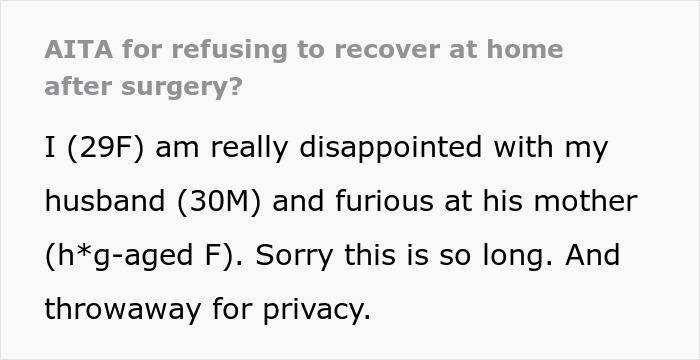

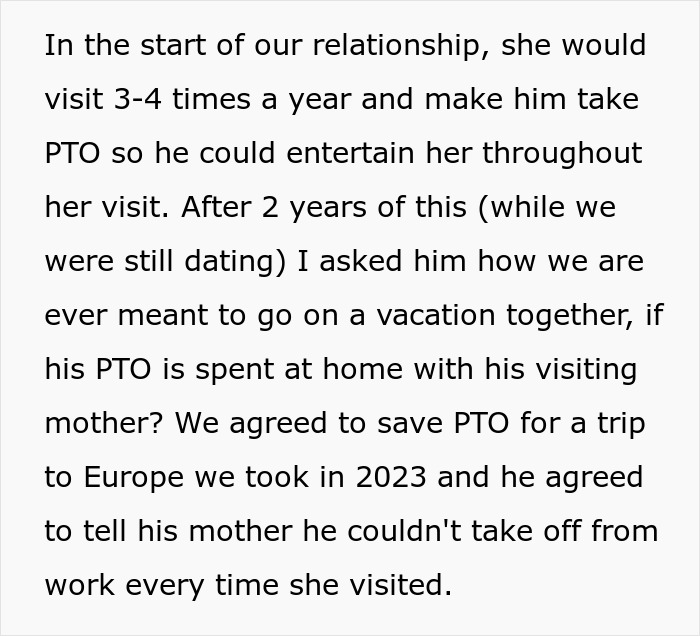
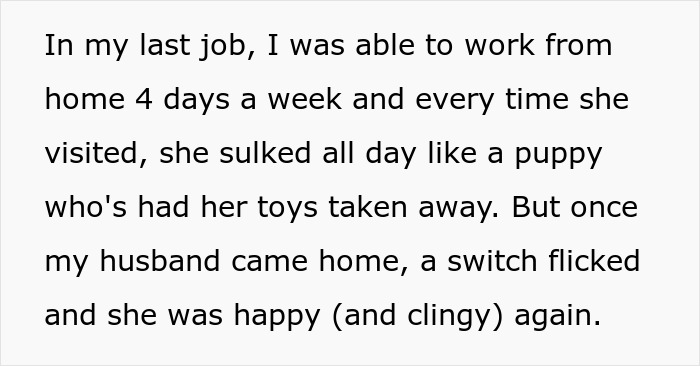

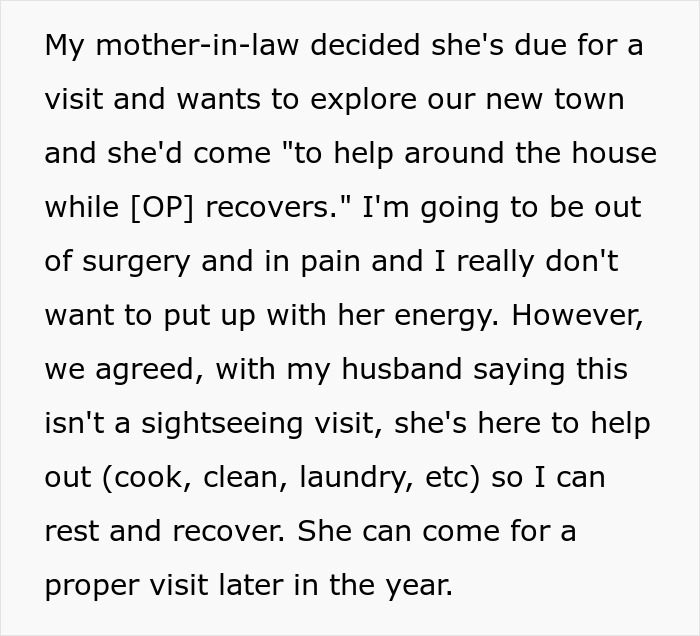

Image credits: Zinkevych_D (not the actual photo)

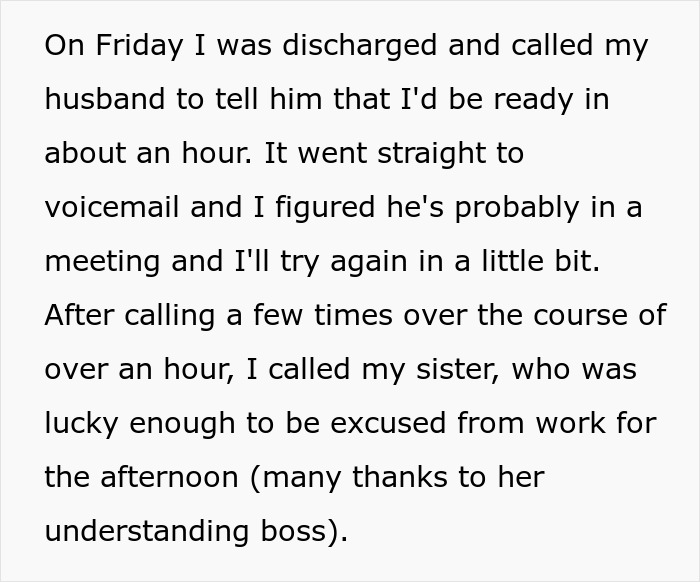
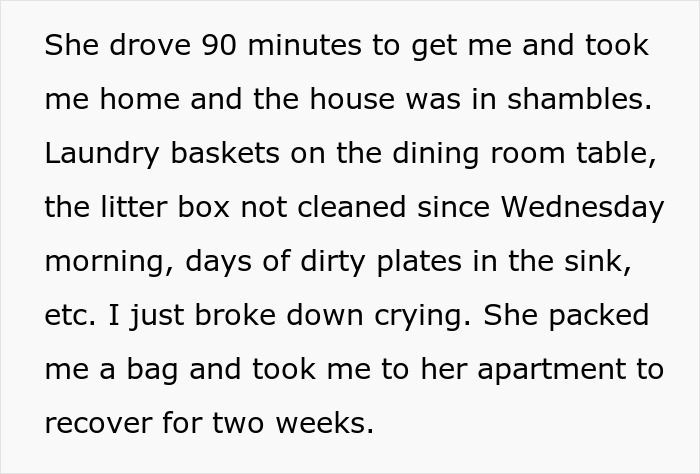
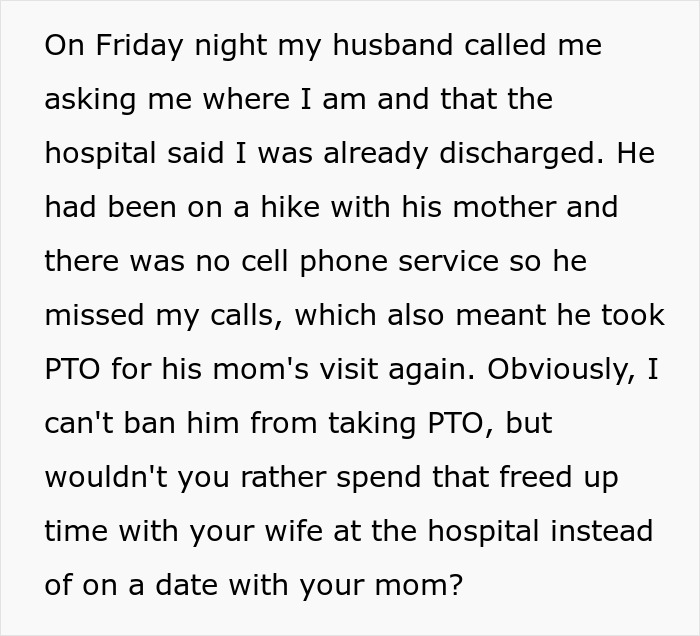
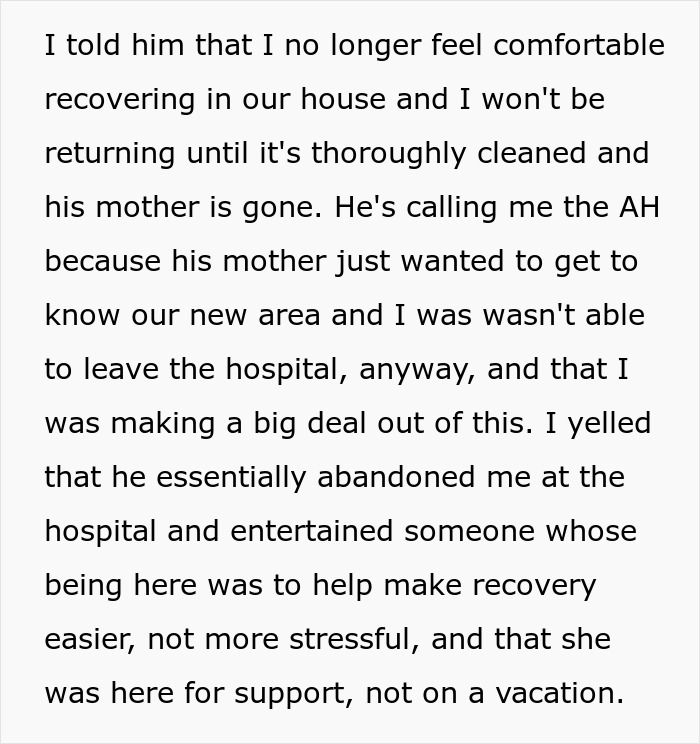

Image credits: prathanchorruangsak (not the actual photo)
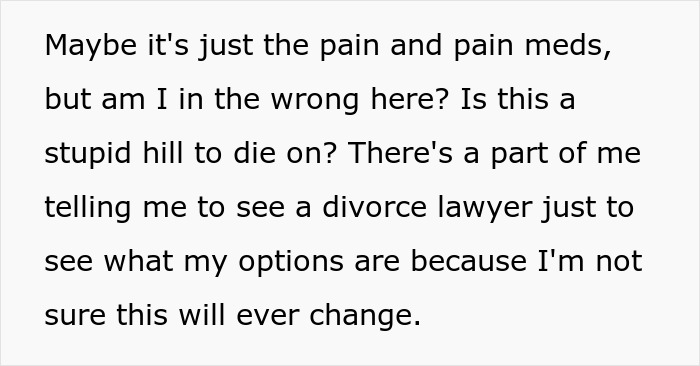
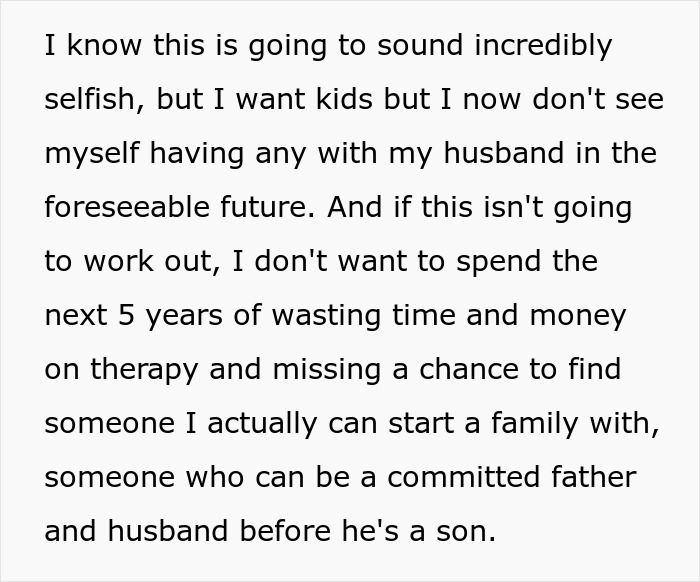

Image credits: PuzzleheadedTooth255
Abandonment can spell the end of a relationship
Being left behind by your partner can strike at the core of a relationship, since for the most part, it’s one of the main ingredients in any long-term relationship to start with. As soon as one feels abandoned, whether emotionally, physically, or in terms of degree of shared responsibility, the pillars of the relationship begin to break down. The emotions of being abandoned tend to make one feel isolated, bitter, and that one’s needs no longer matter. In some cases, these dynamics are doubled when a partner, particularly a man, prioritizes his role as a son over his role as a husband, reinforcing the message that spousal duties are secondary and perpetuating the cycle of neglect.
Abandonment need not be actual desertion. It can come in the form of subtle patterns of emotional unavailability, broken promises, or lack of support during times of crisis. There is typically one defining moment, like this woman’s surgery, that becomes the final straw, but often there is a cumulative “basket” of lesser incidents. When one partner consistently does not listen, share burdens, or appear during times of need, the other feels profoundly alone. That aloneness breeds doubt (“Do I matter to you?”), which in turn fuels insecurity and anxiety. If left unspoken, these wounds intensify, and it makes sincere communication feel dangerous since acknowledging pain may not result in solace but more neglect.
Over time, small acts, skipped date nights, distracted phone use, or brushing off concerns, compound into a pervasive sense that one’s feelings and desires are unimportant. This chronic emotional unavailability sends a clear message: “You’re on your own.” When attempts at closeness are met with indifference, the victim of abandonment begins guarding their heart, creating a feedback loop of withdrawal that further alienates both partners.
Adversity in life, tragedy, illness, or financial stress, demand togetherness. A partner who bolts when stressed, tending to other priorities or fleeing into work or distractions, leaves his or her partner to struggle alone. This can be felt as the ultimate betrayal, severing the emotional bond and undermining the “for better or worse” pledge at the heart of the relationship.

Image credits: Vera Arsic (not the actual photo)
Once that box has been opened, it’s hard to ever close it
As soon as the pattern of abandonment takes hold, the emotional contract between the individual and their partner becomes disrupted. Trust is broken, and forgiveness and vulnerability become hard to achieve. The abandoned partner may seek solace outside the relationship in the form of emotional affairs, increased independence, or ultimately, by ending the partnership. Even if reconciliation occurs, the feeling of neglect has a tendency to linger, requiring ongoing effort to restore safety.
Trust is the cornerstone of intimacy. Abandonment annihilates that trust so that one partner cannot count on the other. Without a steady sense of safety, that your partner will be present for you, commitment is meaningless and the relationship loses its protective intimacy. As abandonment continues, resentment grows. The hurt partner may lash out in fury or withdraw into silence, both of which drive them further apart. Communication breaks down, and they feel increasingly alienated from each other, laying the groundwork for conflict and mistrust.
For other men, being a dutiful son takes priority even after marriage. Cultural expectation or personal guilt about parental care may lead them to prioritize their parents’ needs, financial support, care, or respect, over their wife’s. This asymmetry can be felt as a second abandonment, as the spouse watches her partner put his family of origin first. Men who have been raised to believe that caring for parents is the supreme responsibility may find it difficult to redirect time and energy toward marriage.
When every major decision, from vacations to residence, is made with parental needs in mind, the spouse comes second. Abandonment wounds run deep, yet understanding the causes, whether in emotional distance or divided loyalties, offers a path to healing. As long as both partners are willing to pledge presence, priority of relationship, and respect for one another, the threat of abandonment can be disarmed. Yet if the pattern persists, it will drain even the most passionate vows, so that separation will seem the only refuge from continued neglect.

Image credits: Nathan Cowley (not the actual photo)
Most thought she was right to be upset


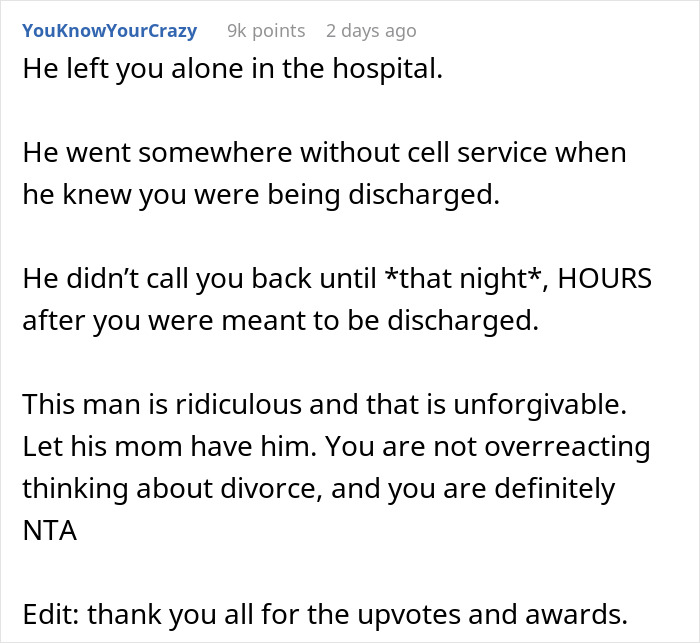


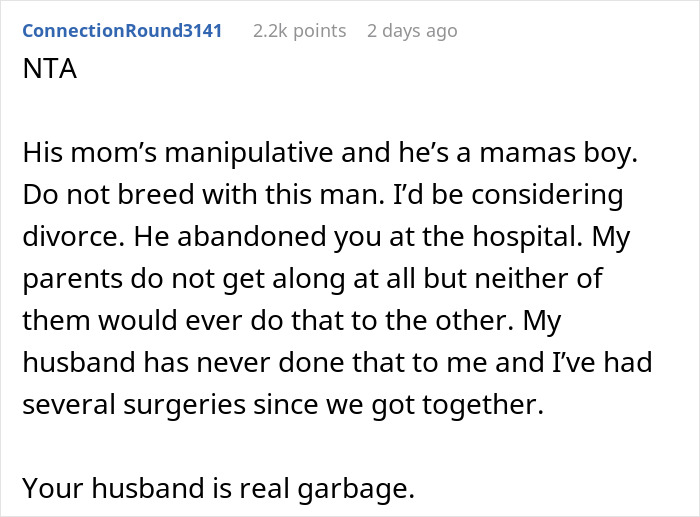

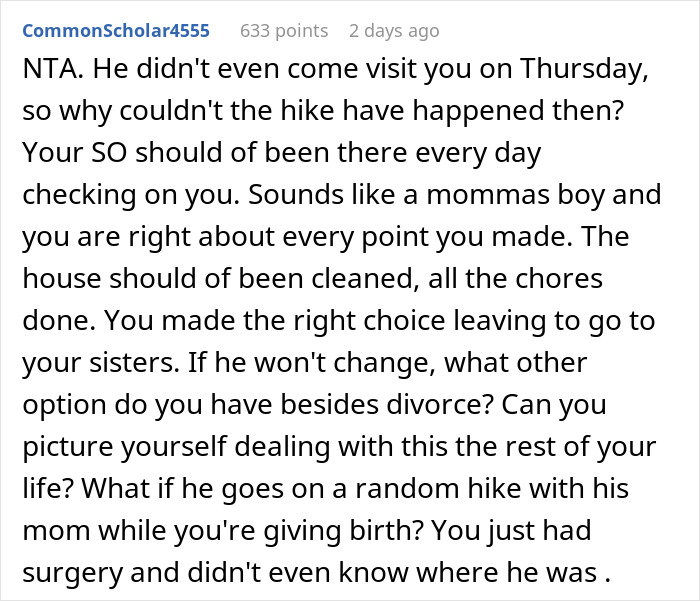
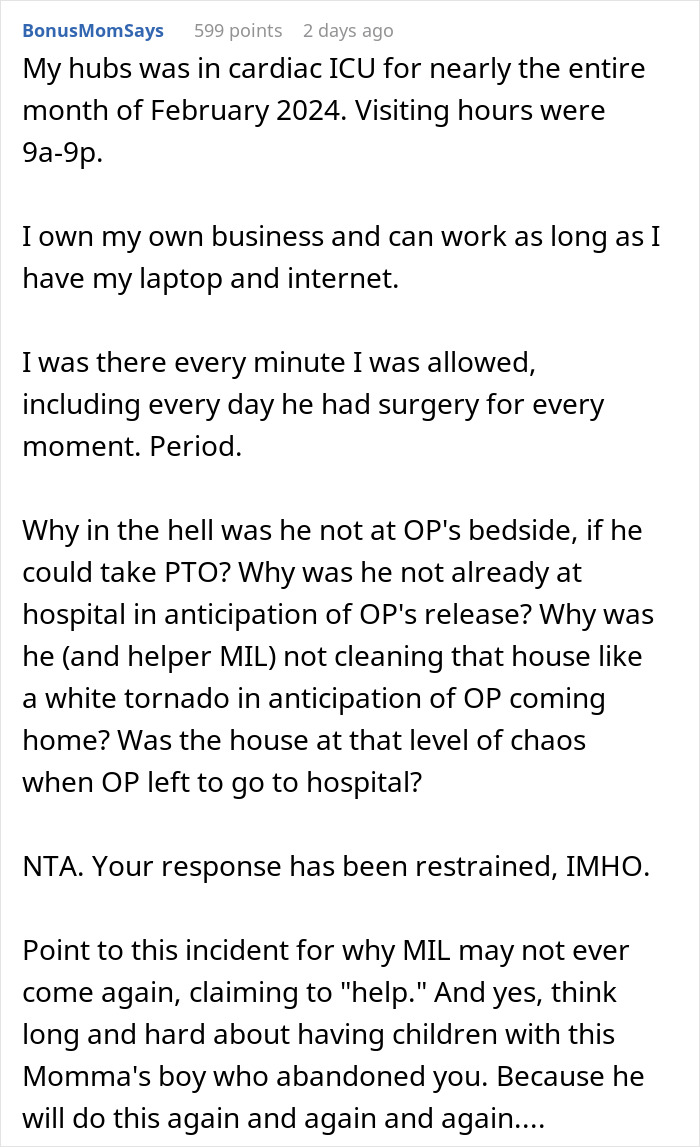


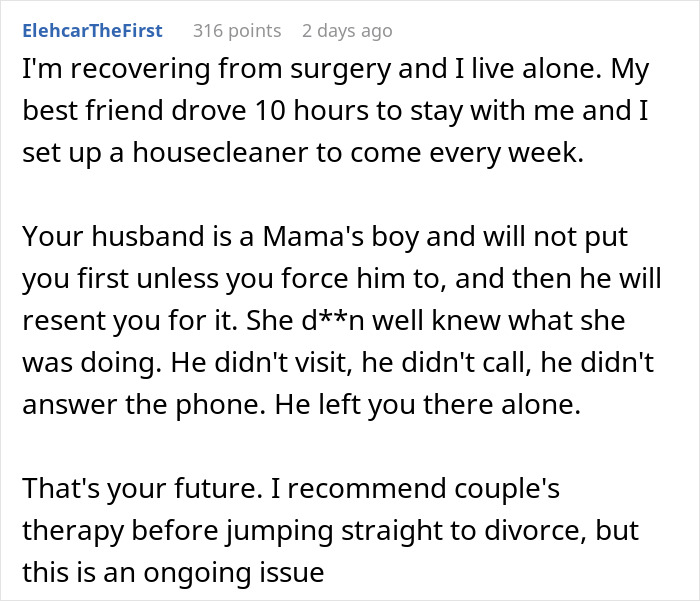




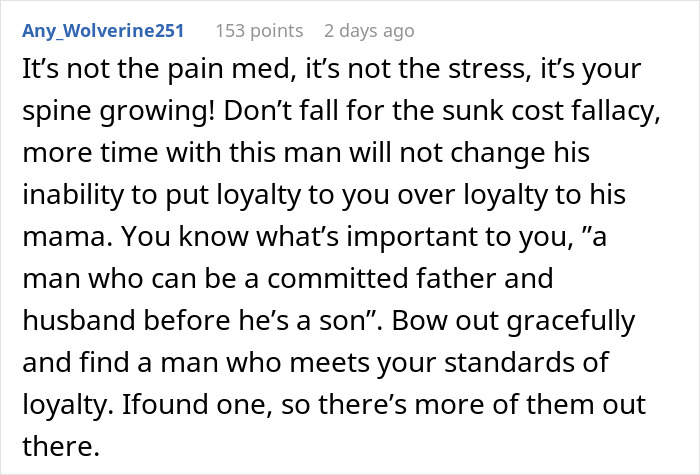


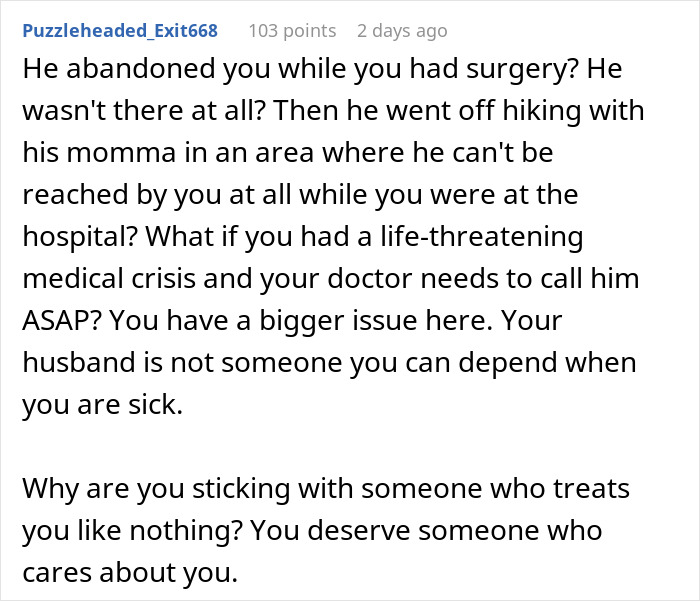

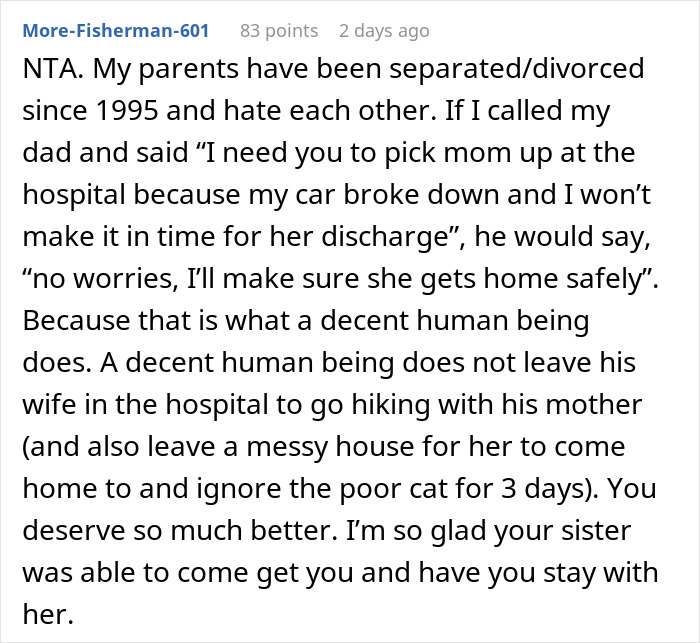



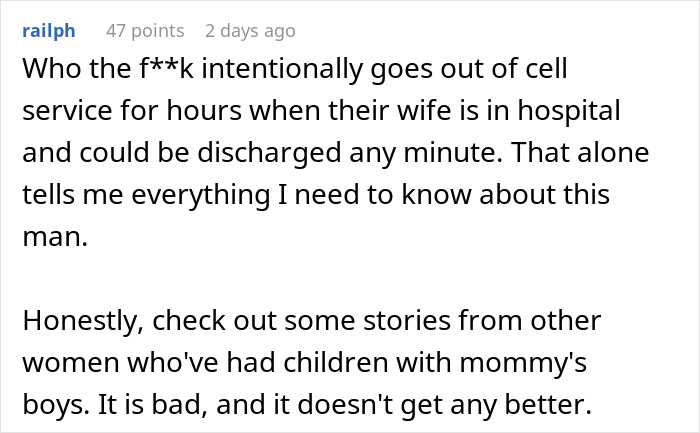















 English (US) ·
English (US) ·